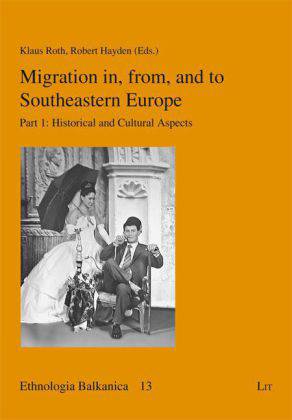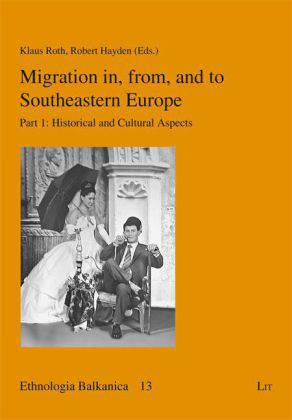
Bedankt voor het vertrouwen het afgelopen jaar! Om jou te bedanken bieden we GRATIS verzending (in België) aan op alles gedurende de hele maand januari.
- Afhalen na 1 uur in een winkel met voorraad
- In januari gratis thuislevering in België
- Ruim aanbod met 7 miljoen producten
Bedankt voor het vertrouwen het afgelopen jaar! Om jou te bedanken bieden we GRATIS verzending (in België) aan op alles gedurende de hele maand januari.
- Afhalen na 1 uur in een winkel met voorraad
- In januari gratis thuislevering in België
- Ruim aanbod met 7 miljoen producten
Zoeken
Migration in, from, and to Southeastern Europe
Part 1 Historical and Cultural Aspects
€ 29,45
+ 58 punten
Omschrijving
Migrations have moulded Balkan societies. In the multiethnic empires migrations were very common, and in the modern era, economic reasons led millions of people to go abroad as overseas emigrants before World War I, as Gastarbeiter in the 1960s and 70s, or as economic migrants since 1990. In addition, many people had to leave their homes as political refugees or as victims of ethnic cleansing. But Balkan countries were and are also hosts to immigrants and refugees, and they have witnessed enormous rural-urban migrations. This volume, the first part of a selection of conference papers, focusses on historical and cultural aspects of migration in, from and to Southeastern Europe.
Specificaties
Betrokkenen
- Uitgeverij:
Inhoud
- Aantal bladzijden:
- 304
- Taal:
- Engels
- Reeks:
- Reeksnummer:
- nr. 13
Eigenschappen
- Productcode (EAN):
- 9783643108951
- Uitvoering:
- Paperback
- Afmetingen:
- 147 mm x 208 mm
- Gewicht:
- 414 g

Alleen bij Standaard Boekhandel
+ 58 punten op je klantenkaart van Standaard Boekhandel
Beoordelingen
We publiceren alleen reviews die voldoen aan de voorwaarden voor reviews. Bekijk onze voorwaarden voor reviews.








